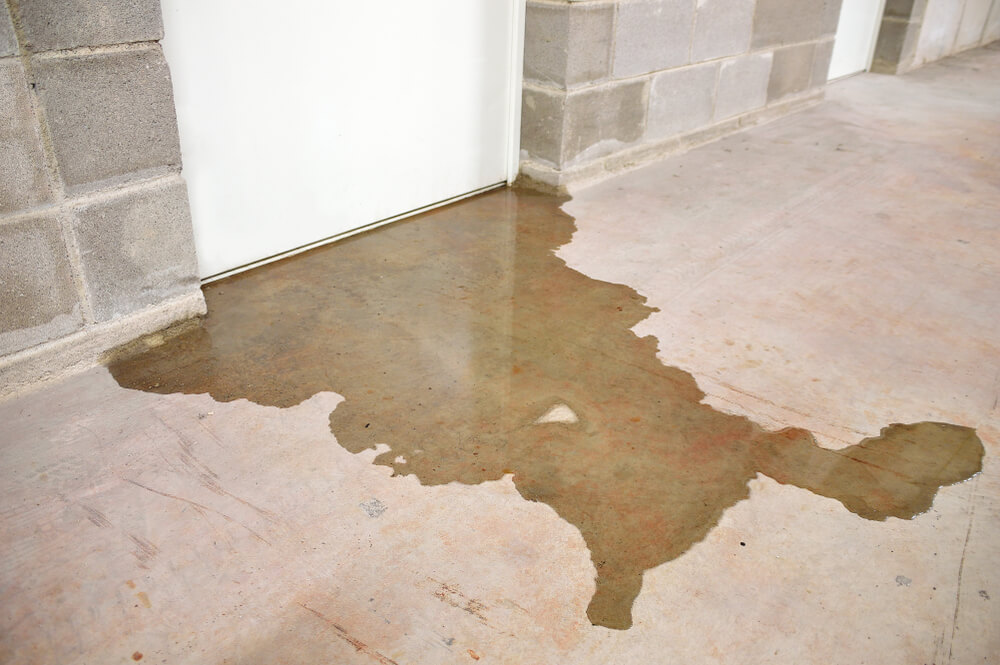Having an AC leak is far from a homeowner’s dream. In fact, having an AC leak is closer to a homeowner’s nightmare. A seemingly minor AC leak can cause water damage and lead to expensive repairs and a lot of headaches. If you have an AC leak, you may be wondering, “Does my insurance cover that?” Here we will look at how insurance may cover an AC leak.
An AC leak isn’t always a minor problem
AC leaks can damage other areas of your home. In many areas of the country – including Florida – AC systems run almost year round. Constant use and wear and tear can often lead to an AC leak or other problems with your HVAC system.

AC leaks can stem from many problems with an AC system. Cracked or deteriorating drain pans can leak. Condensation pumps can malfunction letting condensation cause an AC leak. Drain lines can also come loose and disconnect from the system causing an AC leak. Most commonly, the evaporator coils can freeze from the AC unit while working to maintain a cooler temperature. Lastly, drain lines can get clogged causing buildup and eventually an AC leak.
Water damage and an AC leak
If you have water damage in your home, the source isn’t always easy to locate. Water moves around, and often the signs of the damage aren’t anywhere near where the leak started. If you suspect you have an AC leak, it may be best to contact an HVAC professional to help find the source of the leak.
When you have an AC leak, water damage often occurs in other areas of the home and doesn’t stay confined to just where the AC unit is. Water follows a path of least resistance. Often an AC leak will end up showing water damage in other areas of your home. These include dining rooms, living areas, closet spaces, hallways, bedrooms, and bathrooms. Any area or wall in the house that is in contact with your AC system can experience water damage from an AC leak.
Discovering an AC leak
AC leak insurance claims can be complicated and stressful. Homeowners may have to make decisions and become familiar with aspects of their home they never gave much thought. An AC leak can include damage and repairs to ceilings, walls, baseboards, insulation, flooring, and drywall. What may seem like a minor AC leak can cause extensive damage and many homeowners may need help from their insurance company.
AC leak claims don’t end with the areas of water damage. Homeowners must deal with other issues related to the AC leak itself. Problems can include locating the source of the leak within the unit and removing the water from the unit and the surrounding area. Homeowners will also have to deal with dehumidifying the area as well as any structural repairs that may be needed. Often, insurance company adjusters underestimate the area that must be restored and repaired when it comes to an AC leak. Homeowners must be diligent in making sure all the damage is repaired.
Adding to the problem is the potential for damage to a homeowner’s personal property and the chance that the home or area may become difficult to live in while repairs are being made. Some homeowners may have to seek alternate living arrangements while an AC leak is repaired, and the resulting damage restored.
How to document an AC leak claim
When filing a claim for an AC leak, documentation is critical. Proper documentation makes the difference between getting a fair and accurate claims settlement for your AC leak and getting a low balled claim. Your AC leak documentation begins when you first contact your insurance company about the problem. It is best to gather as much evidence as possible about the AC leak to build a proper claim file.
A professional AC technician can help your claim by diagnosing and documenting the problem. Your insurance company will ask for documentation from a professional because your coverage will depend on what has caused the AC leak. It is also best practice when you have an AC leak to document the damage with photos or video. It is essential to record the damage from your AC leak before you begin any repairs or remediation.
At this point, it may help to contact a public adjuster to work with you to help document the damage for your AC leak and help file the claim with your insurance company. Keep in mind that a public adjuster is a claims professional who works on behalf of policyholders to make sure you get a fair claim settlement. They are experts in claims processes and home repair.
Remember, what happens at the beginning stages of a claim has a significant effect on the outcome. A public adjuster can help by making sure you submit the correct documentation to your insurance company and that your settlement is enough to repair the damage the AC leak caused.
Will my policy cover an AC leak?
Wondering if your home insurance policy will cover an AC leak is a good question. There is not an easy answer. It depends on your policy and what has caused the damage to the AC unit. In general, if your AC leak is caused by damage that is covered under your policy such as damage from a fire, vandalism, lightning strikes or a falling tree or another object, there may be coverage under your homeowner policy to repair the damage.

However, an AC leak that is caused by normal wear and tear of your HVAC system will not be covered under your homeowner policy. The policy will likely not pay to repair the unit, but it may pay to repair the water damage the leak caused.
AC leak claims can be complicated
AC leak claims have several moving parts. Damages may include the unit itself as well as water damage to the surrounding areas of the home. Whether your homeowner policy will cover your cost depends on your policy and the type of damage you have to the unit. Contact Bulldog Adjusters today for help with an AC leak claim.








Nice post 🙂